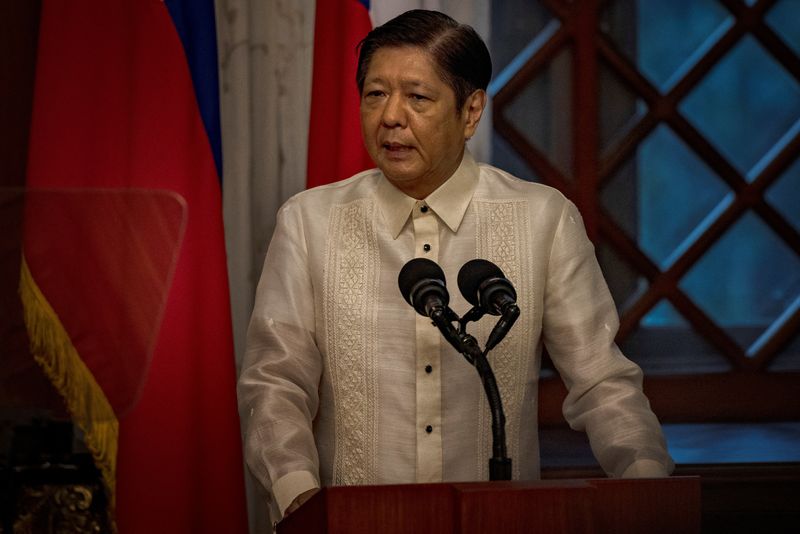Philippines’ Marcos to seek specifics from Biden on US defence commitment
2023.04.24 04:10

© Reuters. FILE PHOTO: Philippine President Ferdinand Marcos Jr. delivers a speech as part of a joint press statement with Czech Prime Minister Petr Fiala, at Malacanang Palace, in Manila, Philippines, April 17, 2023. Ezra Acayan/Pool via REUTERS
MANILA (Reuters) – Philippine President Ferdinand Marcos Jr on Monday said he will press U.S. counterpart Joe Biden to make clear the extent of Washington’s commitment to protect his country under a 1951 security pact, citing growing regional tension.
The past two Philippine administrations have urged former colonial power United States to be specific on the circumstances under which it would defend its ally under the Mutual Defence Treaty, amid fears of an increased risk of confrontation in the South China Sea.
Marcos will hold talks with Biden in Washington this weekend, a meeting the White House said would reaffirm its “ironclad commitments to the defence of the Philippines”.
“It (the treaty) needs to adjust because of the changes in the situation we are facing in the South China Sea, Taiwan, North Korea,” Marcos said in a radio interview.
“The situation is heating up,” he added.
The push for clarity comes amid a steady buildup of military and coast guard assets by Beijing in the South China Sea, including artificial islands in the Spratly archipelago that are equipped with missile systems within range of the Philippines.
It also comes as the Biden and Marcos administrations seek to boost their military alliance, demonstrated this year by the largest-ever U.S. troop presence at annual war games and the Philippines almost doubling the number of its military bases that Washington can access.
The Philippines has said the agreement in bases was for its self-defence purposes.
China, however, says the pact with the United States is stoking the fire of regional tensions.
Marcos on Monday said he and Biden should discuss what exactly their alliance entails and how to manage tension with China.
“What is our partnership? What can be done to tone down or reduce rhetoric? Because there have been an exchange of heated words,” he said.








